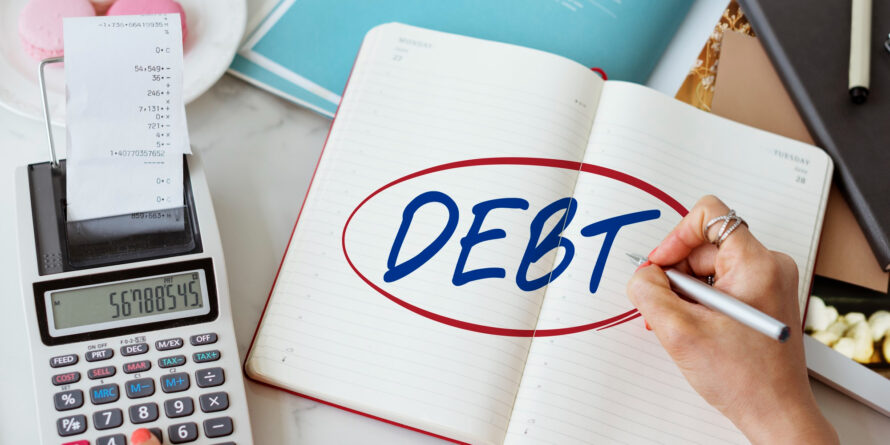
Managing Debt Wisely: Strategies to Pay Off Debt and Improve Financial Health
Debt is a reality for many Americans. According to the Federal Reserve, total household debt in the U.S. reached over $16 trillion in the first quarter of 2022. While some debt like mortgages and student loans can be productive, high levels of consumer debt like credit cards or payday loans can become overwhelming and damaging to financial health. The key is learning how to manage debt wisely. With some practical strategies, you can effectively pay off debt and build stronger finances.
Assess Your Current Debt Situation
The first step is to get a clear picture of your existing debts. Make a list of all debts you owe with the amount owed, interest rates, and minimum payments. This debt inventory allows you to see your total debt, understand how much you pay each month, and identify any high-interest debts that are costing you more in interest. You can use a spreadsheet or debt payoff calculator to track all of this information in one place.
Create a Budget
A budget is essential for managing your income and expenses wisely. Track your net monthly income after taxes. Then list out all of your necessary living expenses like housing, utilities, food, transportation, and minimum debt payments. The goal is to find areas where you can cut back discretionary spending and free up money to pay off debts faster.
Look for places where you can reduce costs, like eating out less, canceling unused subscriptions, or finding cheaper insurance rates. Finding an extra $100 or $200 per month can make a significant difference in your debt repayment.
Pay Off Highest Interest Debt First
The “debt avalanche” method is a well-established debt repayment strategy. It involves prioritizing the repayment of debts with the highest interest rates initially. By doing so, you can significantly decrease the total interest accumulated over time. For example, if you pay off a credit card with a 20% APR before a student loan with a 5% APR, you save more on expensive interest charges. Start by making minimum payments on all debts, then put any extra funds towards the highest APR debt until it’s paid off.
Consider Consolidating or Refinancing Debt
Consolidating multiple high-interest debts into one can make managing repayments easier. You can take out a personal loan based on income or transfer balances to a lower APR credit card. This reduces the number of monthly payments and may lower the effective interest rate. Only consolidate if you can pay off the loan quickly and avoid accruing more debt on old accounts.
Refinancing expensive debts like auto loans or private student loans can also potentially lower interest rates and monthly payments. Research options to refinance debt if you have good credit and income. Run the numbers to see if it makes sense for your situation.
Increase Your Income
Bringing in more income each month provides more money that can be put toward getting out of debt faster. Options include asking for a raise, finding a higher-paying job, starting a side business, or taking on freelance work in your spare time. Even an extra few hundred dollars each month makes a difference in how quickly you can become debt-free.
Automate Payments and Savings
Automating your finances can help manage debt repayment. Set up minimum payments to automatically deduct from your bank account each month so you never miss payments. Automatically transfer any extra money into a savings account for debt repayment.
Building even a small emergency fund helps prevent taking on new debt when unexpected expenses come up. Automation takes the effort out of actively managing payments and savings.
Seek Additional Support if Needed
If your debt feels completely overwhelming, seek help from a nonprofit credit counseling agency. They can assist in developing a personalized repayment plan that works for your budget. In certain cases of extreme financial hardship, bankruptcy may be an option to discharge unmanageable debt. However, the impact on your credit score makes this a last-resort option after exhausting other debt management strategies.
Stay Motivated Throughout the Repayment Journey
Paying off significant debt takes time, commitment, and sustained motivation. Celebrate important milestones like paying off your smallest debt or saving up your first $1,000. Visually tracking your progress can keep you motivated too.
Remind yourself regularly why you started your debt repayment journey, like improving finances, reducing stress, or achieving a big savings goal. Staying focused on the result will give you the stamina to stick with debt repayment until you become debt-free!
Conclusion
Managing debt wisely takes diligence, patience, and adopting the right strategies for your situation. But paying off debt and attaining financial freedom is a worthwhile pursuit. By assessing your debts, budgeting effectively, reducing interest costs, increasing income, automating finances, and staying motivated, you can take control of your debt. With a strategic approach, you can pay off debt in a reasonable timeline and build a stronger financial foundation.

